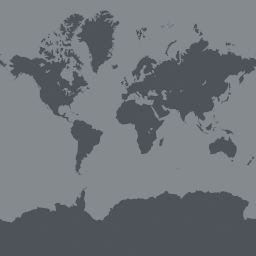The Odonata order (dragonflies and damselflies) are good bioindicator insect species for the assessing the effect of climate change on habitats such as wetlands, rivers, streams, and riparian forests. Unfortunately, knowledge of Odonata in Nigeria is incomplete, with diversity and distribution data not readily available. As a result, ecosystem quality assessments and monitoring hardly receive proper attention from taxonomists, and environmental biologists rely on inefficient family- or genus-level identifications. Although global efforts are underway towards detailed knowledge of the diversity of Odonata, the feasibility depends largely on the identified species at regional levels.
Some studies have focused on diversity, banking and DNA barcoding of odonates in southern Nigeria, however, data collation on the order as a whole is unavailable. Compiling these records for improved access is therefore important. This project will focus on capacity building for postgraduate students and researchers within conservation, and mobilize and publish relevant species records to GBIF.org. Aligned with the sustainable development goal on Climate change, the project will assess the effects of anthropogenic activities on the region's Odonata fauna, and also digitize well-curated and catalogued Odonata specimens to enhance the contribution of Nigerian insect museums to GBIF.
Project Progress
Since the project inception the project has held. Over three days the project team held a workshop on Digitization and Mobilization of biological in January facilitated by Dr. Kemabonta (PI) and Dr. Onuminya (member of the research team). This workshop brought together 47 participants from a range of academic, ministries and research institutes to learn biodiversity data best practices through a mixture of traditional learning and field study visits. In all, 45 species from 1021 odonates from Lagos and Edo States, Nigeria have been cleaned and digitized. The digitization of odonates from Oshun and Ondo states have commenced and about 2,000 data records have been generated and are being digitized and cleaned.
The data on odonates of southern Nigeria has been published on GBIF. A total of 255 species and 13 families from 8000 odonates have been published from Lagos (University of Lagos, Lagos State University, Omu resort, and Lufasi Park), Ondo (Federal University of Technology, Akure), Oyo (Univeristy of Ibadan and its environs, Eruwa), Osun (University of Lfe), Akwa-Lbom, Kaduna (Ahmadu Bello University, Zaria), and Endo (Okomu forest reserve) States, Nigeria. The IUCN status of the collected samples were assessed using red data listing. At the end of the project a stakeholders meeting were held, sharing results and data obtained with relevant stakeholders from the communities, government agencies and parastatals. This included the Ministry of Environment.



